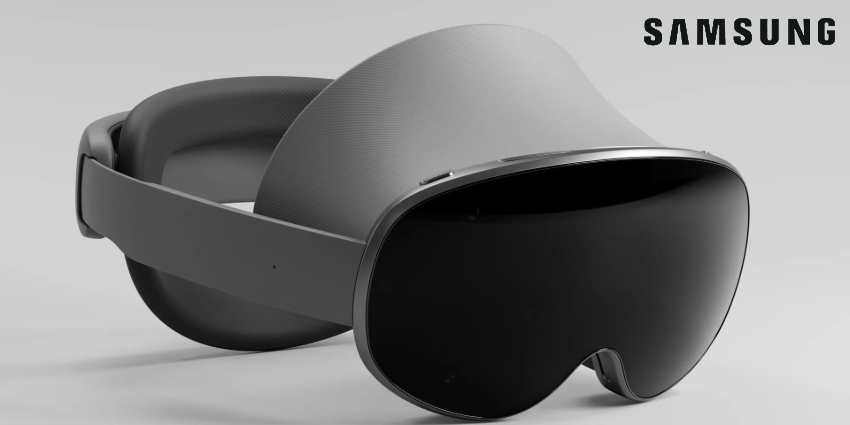Samsung has just unveiled Project Moohan, its highly anticipated extended reality (XR) headset, in-person for the first time.
Showcased at Galaxy Unpacked 2025 and set to compete with the Meta Quest and Apple Vision Pro, this exciting joint venture between Samsung and Google brings powerful AI integration to mixed reality, potentially setting a new standard for XR devices.
The micro-OLED displays boast an impressive 3,000 DPI resolution, significantly outperforming the Meta Quest 3’s 1,200 DPI, while the Qualcomm Snapdragon XR2+ Gen 2 chipset ensures smooth performance across applications.
Tech reviewer Marques Brownlee was lucky enough to get hands-on with Moohan recently:
Video from Marques Brownlee
Innovation, AI, and Fitting Into your Digital Ecosystem
Samsung’s approach to AI integration reveals ambitious plans for connected living.
As Executive VP Kim Ki-hwan explains:
Since the early stages of designing Android XR, we have tried to devise ways to utilise AI in everyday life. Instead of trying to do everything with one device, we wanted to connect XR with smartphones and home appliances so they can more efficiently communicate with the AI assistant.
But this vision extends beyond standalone XR functionality.
Moohan is designed to be a hub for everything in your digital life; connecting seamlessly with Samsung’s ecosystem of devices. The Android XR platform enables compatibility with conventional Android apps alongside XR-specific applications. Just imagine – a unified experience across your entire digital landscape!
Design Features
The hardware design reflects Samsung’s ecosystem-first approach. The headset features a lightweight frame with plush padding and innovative, magnetically removable light seals, and it’s engineered to work seamlessly with your smartphone and smart home devices, facilitating natural transitions between virtual and physical interactions.
Key design features include:
- Lightweight frame with premium build quality
- Magnetic light seals for customisable immersion
- Plush padding for extended wear comfort
- Automatic IPD adjustment via eye tracking
- Smart device integration built into the core design
It’s notably lighter than the Apple Vision Pro’s 600-gram weight too, while maintaining premium build quality and connectivity features.
Enterprise Solutions: The Ecosystem at Work
Moohan already has some key business partnerships in place. Adobe’s creative suite integration suggests strong potential for design and creative work, while partnerships with companies like MLB demonstrate its enterprise capabilities.
As Samsung actively expands its developer ecosystem, offering “software development kits (SDK) [to] XR developers and sessions to learn about the SDK in multiple cities,” we can expect to see more business applications emerge.
The Android XR platform’s ability to run conventional Android apps, alongside XR-specific applications makes it particularly versatile for business environments, although specific enterprise use cases are yet to be detailed by Samsung.
Market Strategy: The Three-Way Battle for XR
With an expected price point around $999, Moohan strategically positions itself between Meta’s Quest 3 ($499) and Apple’s Vision Pro ($3,499) and should be available later this year.
Each player in this high-stakes game of integrated XR brings distinct advantages: Meta’s vast content library and gaming focus, Apple’s premium build quality, Samsung’s ecosystem integration backed by Google’s AI capabilities.
The future of XR likely won’t be determined by hardware specs alone, but by how these devices fit into our daily lives.
As Kim Ki-hwan’s vision suggests, perhaps the real winner won’t be the company that builds the best headset, but the one that most successfully integrates XR into our existing digital environments – and with Android XR’s open platform approach, Moohan might just have found that sweet spot.
Read the full article here

